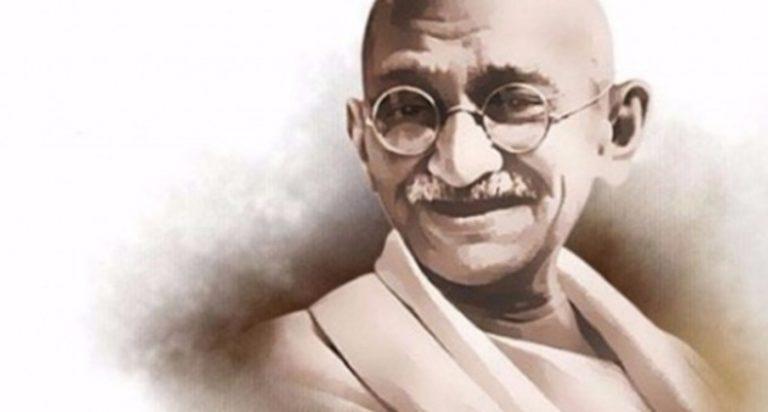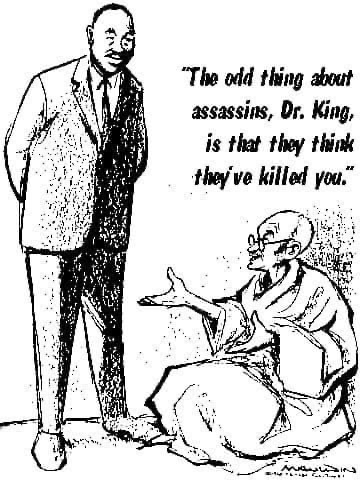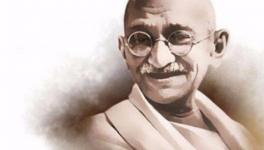Gandhi is Alive, Still Talking to Us

File Image
Mahatma Gandhi’s last words, ‘Hey Ram’, at the prayer meeting in Delhi on 30 January 1948 when a Hindu fanatic fatally shot him are etched in our collective memory. Recalling that day sensitises present-day Indians to beware of the growing majoritarianism crisis threatening our country. But that evening in 1948 was not the first time Gandhi uttered those two words.
Hey Ram in South Africa
In his book, Satyagraha in South Africa, Gandhi recalls saying ‘Hey Ram’ just before he fainted when some Pathans from the North-Western Frontier Provinces, led by Mir Alam, had beaten him up and injured him grievously. The Pathans were opposed to Gandhi’s decision to provide the British authorities with fingerprints for an assurance to repeal a tax imposed on Indians. After the assault, Gandhi fell and lost consciousness as blood oozed from his mouth and other parts of his face. This event has immense significance for our time, as we witness hatred in the name of differences in religious practices, food habits, and even interfaith marriages.
When Gandhi learned that the police had arrested Mir Alam and others for assaulting him, he wrote to the Attorney General that he had never held them guilty of any crime, so they should not be prosecuted. As a result, they were released. But some Europeans who had rescued Gandhi appealed to the police to prosecute them as beating up Gandhi on the road amounted to a public offence. They were arrested and sentenced to three months of hard labour.
Gandhi appealed against this, too, saying, “Those who have committed the act did not know what they were doing.” Apprehending that the Hindus might feel hurt because Muslims had assaulted him, he prayed for everyone, saying, “Let the blood spilt today cement the two communities indissolubly.”
Deeper Meaning of Gandhi’s Martyrdom
More than four decades after his appeal for communal amity, he took three bullets of hatred on 30 January 1948. On 5 January 1998, while conferring the Gandhi Peace Prize for 1997 to Gerhard Fischer, former President of India KR Narayanan said, “The Mahatma was a martyr for peace. It is true, in a literal sense, that as he walked towards his prayer ground, he was stopped in his tracks by three bullets. But perhaps there is another way of looking at that moment. It has been suggested that, obversely, it was Mahatma who stopped three bullets of hatred in their lethal trajectory. Between the origin and the track of hatred and of conflict, he placed himself. Let us today gratefully remember the martyrdom of Mahatma Gandhi as a martyrdom for peace and human understanding.”
Gandhi Buried Alive
On 3 August 1947, twelve days before India’s independence and almost six months before his assassination, Gandhi was in Srinagar. He received a letter from a Hyderabad-based correspondent that said, “Gandhi is being buried alive.” Gandhi published the letter in Harijan Sevak on 17 August. It read, “‘Gandhi’ means Gandhi’s ideals. It is through these ideals that we have reached where we are. But we are kicking away the very ladder over which we have climbed so high. And it is those who are considered Gandhi’s greatest followers who are doing this. Hindu-Muslim unity, Hindustani, khadi and village industries have been completely forgotten. Those who still talk about them are either themselves deceived or are deceiving others.”
Gandhi responded: “This is by far the best way of burying me alive. But can I believe that I have already been buried?” He then famously asked, “Who is my greatest follower and who is the smallest ?” The answer, Gandhi wrote, was that he has “only one follower, that is myself, or all Indians”. He wrote, “My followers are those who have faith in the abovementioned activities,” referring to Hindu-Muslim unity, Hindustani, khadi and village industries. Then, he wrote with optimism, “I do hope that crores of villagers do believe in these few things.”

In the turbulent days of August 1947, after Kashmir, Gandhi travelled to Lahore, Patna, and Calcutta [now Kolkata], seeking to put out communitarian fires. He wrote in the same journal: “...so long as my faith burns bright, as I hope it will even if I stand alone, I shall be alive in the grave and, what is more, speaking from it.”
Now, even 75 years after his assassination, Gandhi is speaking these words from his grave. The views he expressed have a greater significance in the context of assaults on Hindu-Muslim unity in the India of 2023. These assaults involve lynching Muslims over cow or beef, speeches of the RSS chief that manufacture a 1,000-year war between Hindus and Muslims, legislations that target Muslims over the so-called Love Jihad, the repeated calls to take up arms against them and exclude them from all spheres of collective life.
The strain on Hindu-Muslim harmony caused by Hindutva leaders who have the mandate of the people is extremely painful. They are polarising society with toxic Hindu-Muslim narratives. The immediate pre-Partition scenarios marked by exacerbated communal tensions are being revived to reap narrow electoral dividends.
The correspondent from Hyderabad who wrote to Gandhi felt he was being buried alive because, among other things, his followers were forgetting about forging Hindu-Muslim unity. Now imagine what his anguish would have been like in 20th-century India, where Hindu-Muslim relations are being poisoned by lionising Gandhi’s assassin and those who conspired to kill him. Tragically, some elected BJP leaders are projecting them as heroes. For instance, in his Independence Day speech delivered from the ramparts of the Red Fort on 15 August 2022, Prime Minister Narendra Modi recalled VD Savarkar, whom Sardar Patel had described as a conspirator in Gandhi’s assassination.
Communal Tensions will Distort History
By now, it is clear that the exclusion of Muslims on account of their faith from the social, political and economic spheres will worsen communitarian conflicts in India. Gandhi had issued warnings that such a situation would come to pass. He had even touched upon some projects that the current ruling regime has undertaken to communalise, namely, education and history.
On 2 November 1947, almost three months before his assassination, Gandhi wrote in The Harijan that exacerbating communal disharmony and bitterness would produce educational curricula based on a distorted history. It would further promote an exclusivist outlook and mentality. In his piece, On New Universities, Gandhi wrote with reference to the Hindu-Muslim question, “The poison has assumed such dangerous proportions that it is difficult to forecast where it will land us.” He wrote that if even a single Muslim could not remain in the Indian Union safely and honourably or a Hindu or Sikh in Pakistan, “Our education will then wear a poisonous form.”
“If, on the other hand, Hindus, Muslims and all the others who may belong to different faiths can live in either Dominion with perfect safety and honour, then in the nature of things, our education will take a shape altogether pleasing,” he wrote.
Warning about an exclusive culture, Gandhi said, “Either people of different faiths, having lived together in friendship, have produced a beautiful blend of cultures which we shall strive to perpetuate and increasingly strengthen the shape [of], or we shall cast about for the day when there was only one religion represented in Hindustan and retrace our steps to that exclusive culture.”
Gandhi noted: “It is just possible that we might not be able to find any such historical date, and if we do and retrace our steps, we shall throw our culture back to that ugly period and deservedly earn the execration of the universe.”
Gandhi sternly warned that India would make a “vain attempt” if it tried to obliterate the Muslim period from its history. “We shall have to forget that there was a mighty Jama Masjid in Delhi, second to none in the world or that there was a Muslim University in Aligarh or that there was the Taj in Agra, one of the seven wonders of the world, or that there were the great forts of Delhi and Agra built during the Mughal period,” he wrote.
We must heed Gandhi’s warning and prediction today, as the champions of ‘New India’ poison relations between Hindus and Muslims by communalising education and distorting history.
On the anniversary of his martyrdom day on 30 January, we must also nourish Gandhi’s optimism, such as when he wrote about his faith burning bright even if he stood alone and would speak to us even after his death died.
We ignore Gandhi at Our Peril
Gandhi endures. The cartoon by Bill Mauldin published in the Chicago Sun-Times in 1968 shows Gandhi asking Martin Luther King after they have both died: “The odd thing about assassins, Dr King, is that they think they have killed you.”
Gandhi is speaking from his grave, and he is alive.
The author served as Officer on Special Duty to former President of India KR Narayanan. The views are personal.
Get the latest reports & analysis with people's perspective on Protests, movements & deep analytical videos, discussions of the current affairs in your Telegram app. Subscribe to NewsClick's Telegram channel & get Real-Time updates on stories, as they get published on our website.
























